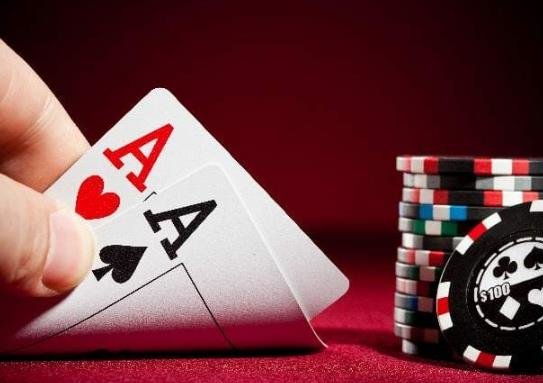Las Vegas has always been a town that thrives on risk. But inside a recent gathering of casino insiders, the real stakes weren’t about winning or losing—it was about figuring out just how many players might be breaking the rules.
At the World Game Protection Conference, held in a sleek conference room humming with tension, the topic of cheating took centre stage. Not in slot machines or roulette wheels, but at poker tables, where the drama plays out slowly, quietly—and sometimes, deceptively.
A Shift in Focus: Poker Isn’t Always the Priority
Before journalist Michael Kaplan took the microphone, the room had already been stirred by a different kind of provocation.
Maria Konnikova, author and academic, stood at the podium asking the sort of question that casino surveillance teams rarely get asked: How many of you are actually watching for poker cheats?
It landed like a pop quiz. Most hands stayed down.
And it’s telling. Because while blackjack and baccarat are constantly monitored for card counting, edge sorting, and suspicious hand signals, poker sits in a strange limbo—part sport, part casino game, and somehow treated as less vulnerable to manipulation.

Why Cheating in Poker Feels Slippery
Cheating in poker isn’t as easy to pin down as marking cards or palming chips.
For one thing, poker is played against other players, not the house. That changes everything.
It’s not just about one person gaming the system—collusion, ghosting, real-time assistance tools, and even soft-playing (when two players avoid betting aggressively against each other) all blur the line between advantage and foul play.
And technology makes it murkier.
Two years ago, the poker world reeled from accusations that top online players were using real-time solvers—tools that calculate the optimal move in any situation—to beat the game. The platforms clamped down, sure, but detection isn’t foolproof.
What the Surveillance Pros Are Watching—And Ignoring
The truth is, casino game protection teams have limited time and bandwidth. Their priority? High-yield games where the house stands to lose.
Poker just doesn’t make the cut.
-
Blackjack and baccarat are watched constantly for counting, collusion, and mechanic dealers.
-
Roulette gets flagged for magnet use or suspicious bets after the ball drops.
-
Slot machines are tracked digitally for irregular wins or tampering.
Poker? It mostly gets shrugged off.
That’s because, unlike blackjack, the house only makes a small rake off each hand. If someone cheats, it’s not the casino bleeding out—it’s the other players.
One surveillance manager, speaking anonymously at the conference, summed it up bluntly: “Poker’s not our problem… unless it’s really obvious.”
The Players Know It Too
Michael Kaplan, whose upcoming book Advantage Players explores those who bend (and break) the rules of gambling, sees the blind spot clearly.
“Casinos don’t feel the sting when someone’s soft-playing a buddy at the table,” he said after his talk. “But poker purists feel it. A cheat can tilt an entire tournament. And sometimes, that cheat walks away clean.”
Poker’s culture of secrecy doesn’t help either.
Most cheating cases come to light through gossip, not enforcement. Whisper networks do more surveillance than security teams.
Take the 2019 Mike Postle scandal, where the American pro was accused of using a phone to receive hand-by-hand guidance. The evidence was mostly crowd-sourced: poker fans dissected hours of live-streamed footage, pointing to suspicious plays and bizarre win rates.
The casino itself? Silent.
New Tech, Old Tricks
Some poker cheats are as old as time. Hand signals. Collusion. Marked cards. But others are getting eerily modern.
Last year, the use of AI-generated strategy advice caused a quiet stir online. Some grinders admitted to testing chatbot tools during low-stakes games.
And then there’s ghosting—where a better player steps in during an online match, either literally or by feeding decisions to a weaker player in real-time. It’s hard to prove. And even harder to stop.
Here’s where the numbers get fuzzy. How many poker players are actually cheating?
No one knows for sure. But a rough snapshot can be seen in enforcement stats from major online poker rooms:
| Poker Site | Year | Number of Cheating Bans Reported | Primary Methods Cited |
|---|---|---|---|
| PokerStars | 2023 | 1,983 | Collusion, Solvers |
| GGPoker | 2023 | 1,106 | Ghosting, RTA Use |
| Partypoker | 2023 | 857 | Botting, Collusion |
It’s just the tip of the iceberg.
So Who’s Looking Out for Fair Play?
In live games, it often falls on the players themselves.
You’d think tournament organisers or the World Series of Poker would have eyes on everything. But policing every interaction, every eyebrow raise, every strangely folded hand? Nearly impossible.
And honestly, some pros don’t want too much scrutiny.
They rely on patterns, on tells, on reading opponents over long hours. Introduce too many rules or monitoring devices, and you risk sterilising the game.
But for casual players who buy into a $500 tournament and run into a cheating team? It’s devastating.
One Vegas-based semi-pro told Kaplan after the talk: “You sit down, play your best game, and realise two guys have been soft-playing each other all night. You feel like an idiot. And nobody does a damn thing.”
A Poker Book With an Edge
Konnikova’s next project digs into cheating across games, and her interest in poker is far from academic.
She’s played against world champions. She’s seen the games get weird.
During her talk, she hinted at stories—players with unusual win patterns, strange alliances, off-the-record confessions. Her point wasn’t just that cheating exists. It was that it hides in plain sight.
Kaplan nodded from the wings. He gets it. His own book details cases where advantage players pushed the limits of legality, blending sharp minds with sharp elbows.
But poker? Poker is slipperier. It’s a place where being too clever can still be called fair—until someone calls foul.
Leave a Reply